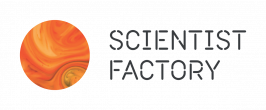Educational experiences
The most important thing children must learn?
What is the most important thing your child needs to learn? I believe it’s neither mathematics, language, nor natural sciences. The ability to think in different ways and become aware of one’s own thinking is even more crucial. This makes it much easier to excel academically.
Children face many demands. They need to master reading, writing, and mathematics. They need to learn English, history, and social studies. These subjects are different but still share one commonality: they require advanced thinking skills. Skills that only we humans possess. Children who are aware of their own thinking gain an advantage. It becomes easier for them to learn whatever they embark on.
Everything you learn from conducting experiments
When I started Scientist Factory, my main focus was to instill a love for science and teach children about natural sciences. However, gradually, I realized that experiments also provide other valuable experiences. Children who conduct experiments and engage in research are prompted to explore their innate curiosity. This creates joy in learning. In addition, these activities provide training in various thinking techniques and skills. They need to think analytically and use their prior experiences and knowledge. They create models and engage in practical work. They also think creatively, logically, and mathematically. And if they conduct experiments with others, they must communicate and collaborate.
Thinking techniques are important
Research shows that thinking techniques make us better equipped to handle life. Consider, for example, the ability to think analytically. It helps us understand the value of analyzing a situation before taking action. We use prior experiences and everything we know in a new context. If you teach your child to develop this skill, they will be better equipped to make good choices as they grow older because they understand the consequences of their actions. Training in creative thinking also has long-term positive effects. This skill makes it easier to think independently and make your own decisions. Another useful thinking skill is problem-solving. In this, we think analytically and use previous experiences to find an answer. It resembles the way scientists work when they create and test hypotheses.
Metacognition, thinking about thinking
Your child will benefit even more from varied thinking training if they become aware that they think and work in different ways. This is called metacognition, which means thinking about thinking. When we become aware that we can think differently in different contexts, learning becomes easier. We acquire a toolbox of strategies to use when trying to understand something new. This is very valuable as children take on more responsibility for their own learning as they grow older. With insight into how they learn, they become active participants in the learning process.
Leads to better academic results
The usefulness of metacognition was experienced by young people who were taught thinking techniques while learning physics. To determine if teaching metacognition improved learning outcomes, the students were divided into two groups. In subsequent physics lessons, students worked individually on tasks they received in a folder. Half of the folders also contained advice on how students could best think while working. The teacher did not know which students received which folders.
When the students were tested three weeks later, it turned out that those who had received metacognition training performed the best. They were also more motivated and felt more confident in the subject. When faced with entirely new tasks, they solved them with greater confidence. So, there is no doubt that reflecting on how we think is useful.
Discount on Advent Calendar!
Secure free shipping and save € 30 on our best advent calendar ever!
For over 20 years, we have inspired over 500,000 children to explore the exciting world of science. The Scientist’s Calendar is a different kind of advent calendar filled with play and knowledge instead of candy and sugar. The calendar contains 24 pre-wrapped packages with magical gadgets, astonishing objects, and engaging experiments for curious children between the ages of six and twelve.


